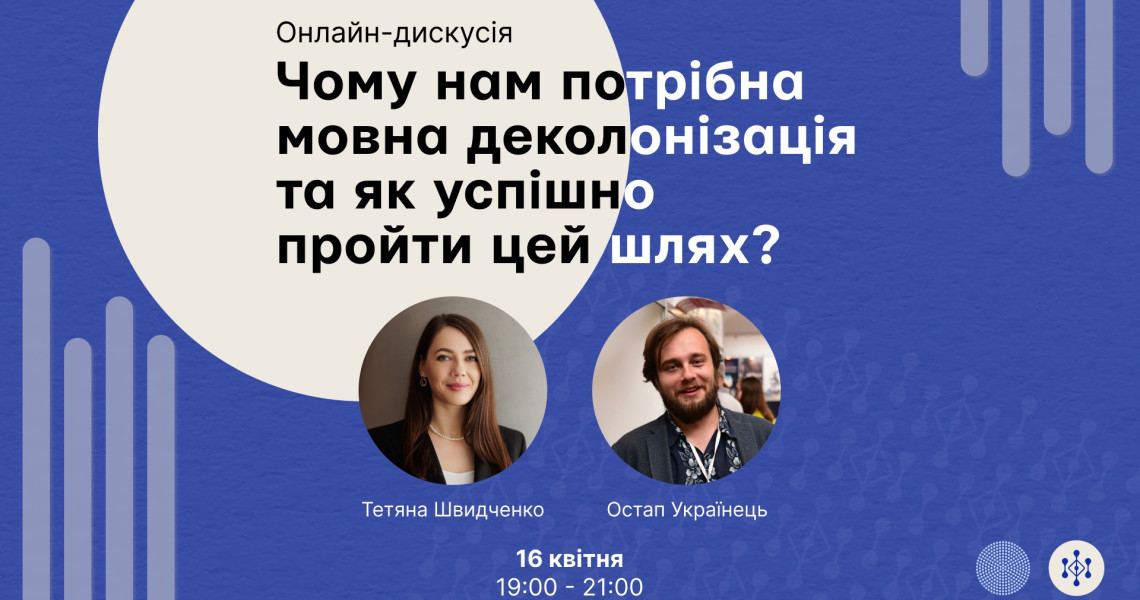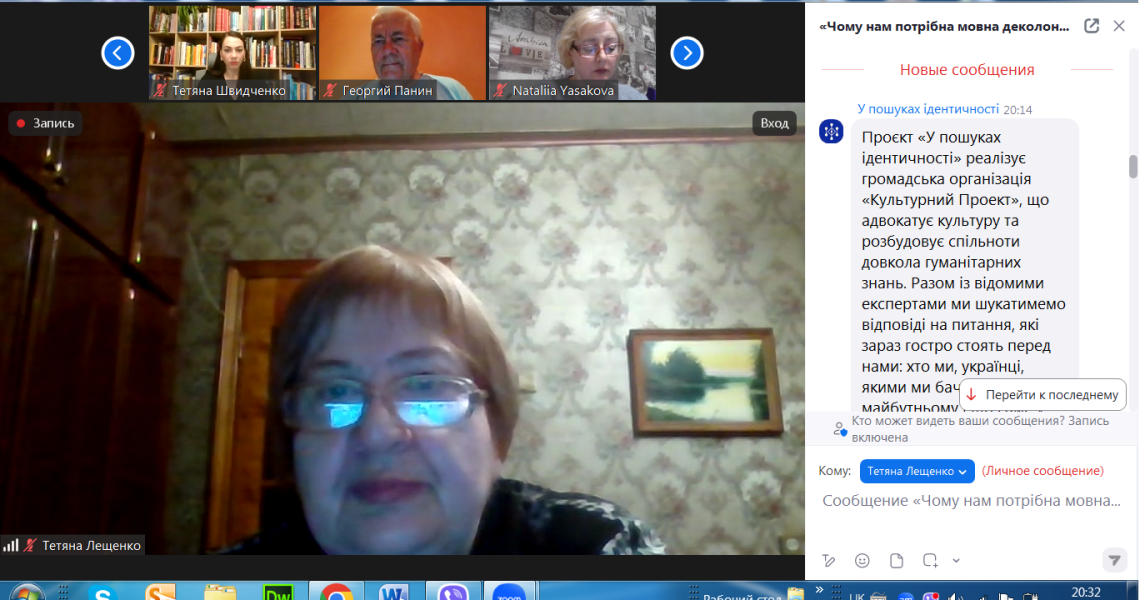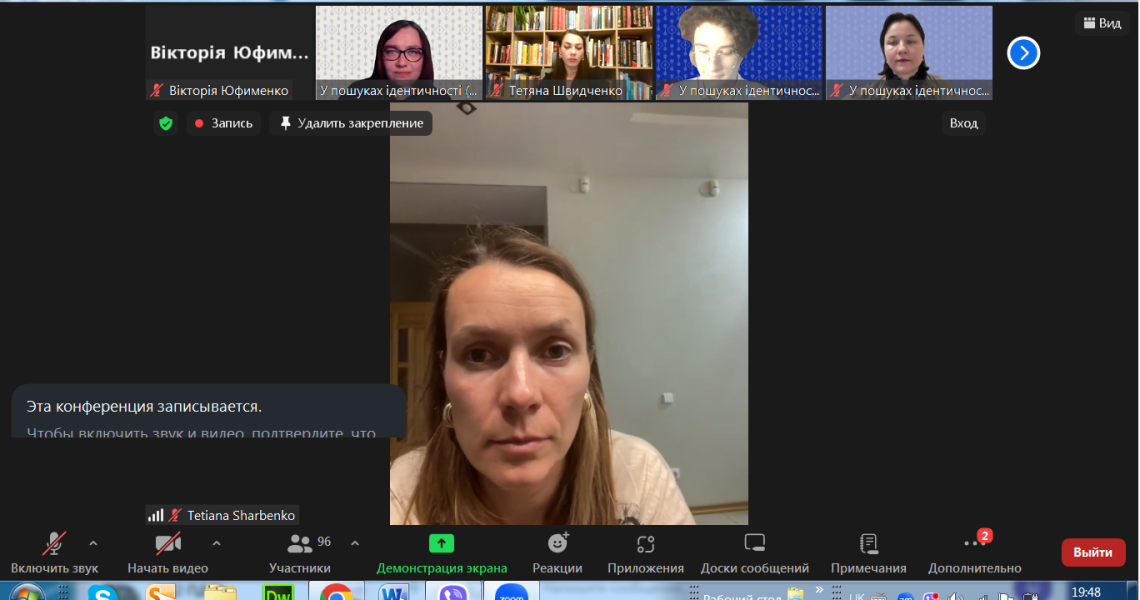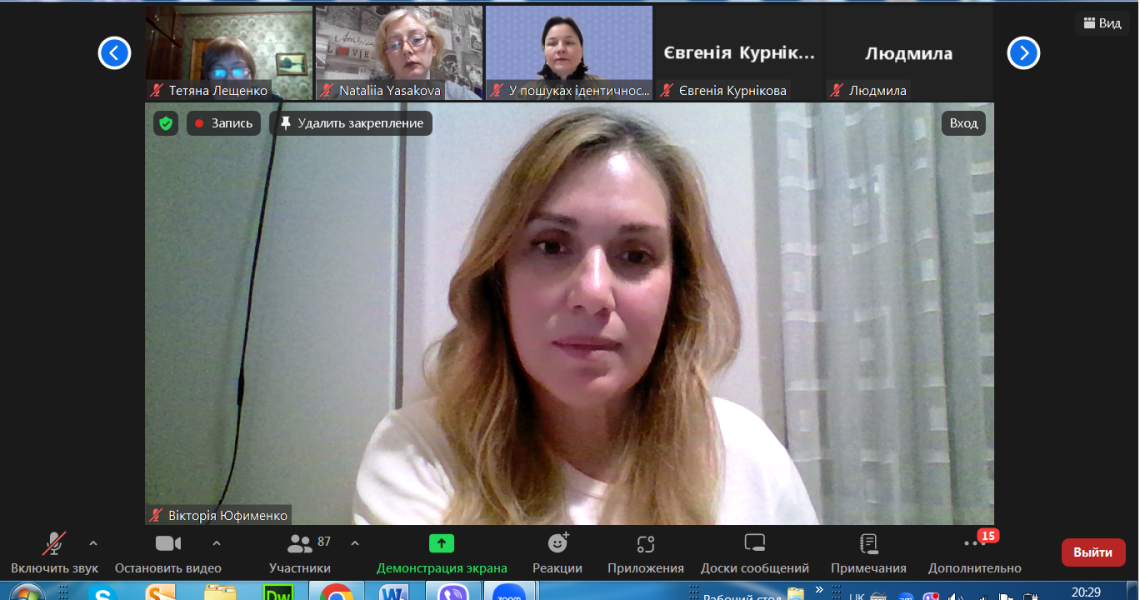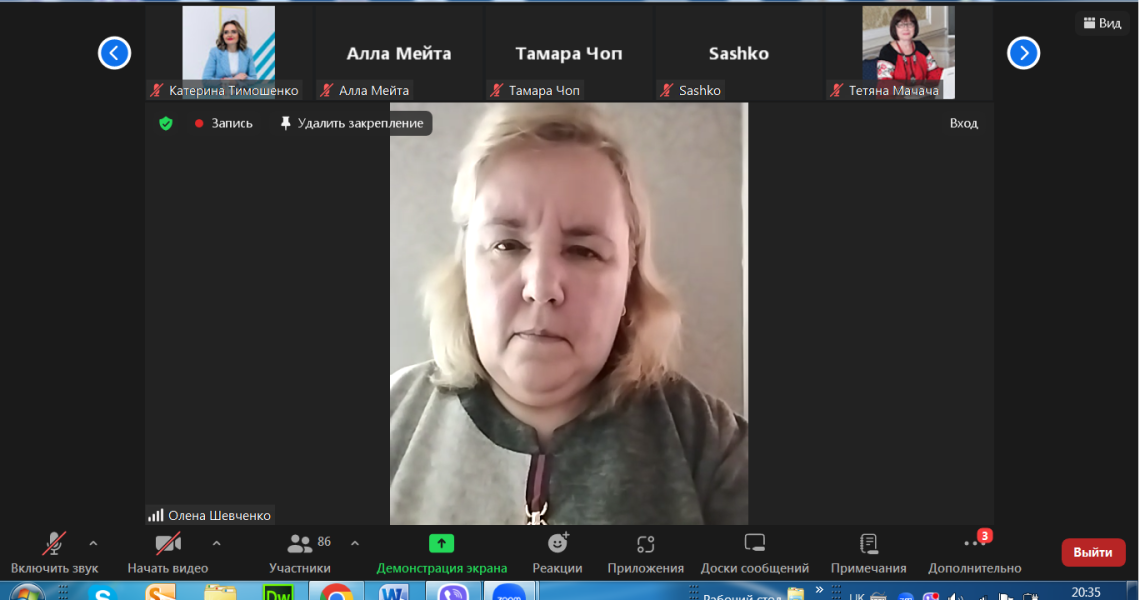16 квітня науково-педагогічні працівниці кафедри (завідувачка кафедри Тетяна Лещенко, доцентки Тетяна Шарбенко і Олена Шевченко, ст. викл. Вікторія Юфименко) вкотре долучилися до проєкту «У пошуках ідентичності» у рамках онлайн-дискусії «Чому нам потрібна мовна деколонізація та як успішно пройти цей шлях?».
Обговорювалися важливі й актуальні питання:
- Чи є мова визначальним фактором у розумінні власної ідентичності?
- Як імперські колоніальні практики впливали на мовну ідентичність українців?
- Мова і державна/національна/особиста безпека: який між ними взаємозвʼязок?
- Діалекти і суржик: що збагачує, а що збіднює мову?
- Які є шляхи мовної деколонізації та чи однакові вони для різних вікових категорій?
Запрошені гості:
Тетяна Швидченко — кандидатка історичних наук, завідувачка кафедри загальноосвітніх дисциплін у Зіґмунд Фройд Університет Україна;
Остап Українець — філолог, письменник, перекладач, співзасновник освітнього YouTube-каналу і видавництва «Твоя Підпільна Гуманітарка».
Модерували дискусію Юлія Кравченко — керівниця проєкту «У пошуках ідентичності» і Наталія Легка — головна редакторка проєкту «У пошуках ідентичності», кандидатка філософських наук.
Усі, хто взяли участь у дискусії, переконані: питання мови, мовної ситуації та політики, що формували цю ситуацію, завжди були гострими й болючими для українців.
Нині ми спостерігаємо значний зсув суспільної свідомості в напрямі збереження, розвитку і плекання української мови. І водночас тривають гострі дискусії на дуже різні теми: про чистоту мовлення, право на вибір мови спілкування, діалекти, суржик та інші.
In search of linguistic identity
On April 16, the academic staff of the Department (Head of the Department Tetiana Leshchenko, Associate Professors Tetiana Sharbenko and Olena Shevchenko, Senior Lecturer Victoria Yufymenko) once again joined the project "In Search of Identity" as part of the online discussion "Why do we need linguistic decolonization and how to successfully go through this path?"
Important and relevant issues were discussed:
- Is language a determining factor in understanding one's own identity?
- How did imperial colonial practices affect the linguistic identity of Ukrainians?
- Language and state/national/personal security: what is the relationship between them?
- Dialects and surzhyk: what enriches and what impoverishes the language?
- What are the ways of linguistic decolonization and are they the same for different age groups?
Invited guests:
Tetшana Shvydchenko, PhD in History, Head of the Department of General Education at Sigmund Freud University Ukraine;
Ostap Ukrainets, philologist, writer, translator, co-founder of the educational YouTube channel and publishing house Your Underground Humanitarian.
The discussion was moderated by Yuliшa Kravchenko, head of the project "In Search of Identity," and Nataliшa Lehka, editor-in-chief of the project "In Search of Identity," PhD in Philosophy.
All those who took part in the discussion are convinced that the issues of language, the language situation, and the policies that have shaped this situation have always been acute and painful for Ukrainians.
Currently, we are witnessing a significant shift in public consciousness toward preserving, developing, and nurturing the Ukrainian language. At the same time, there are heated discussions on very different topics: the purity of speech, the right to choose the language of communication, dialects, surzhyk, and others.






